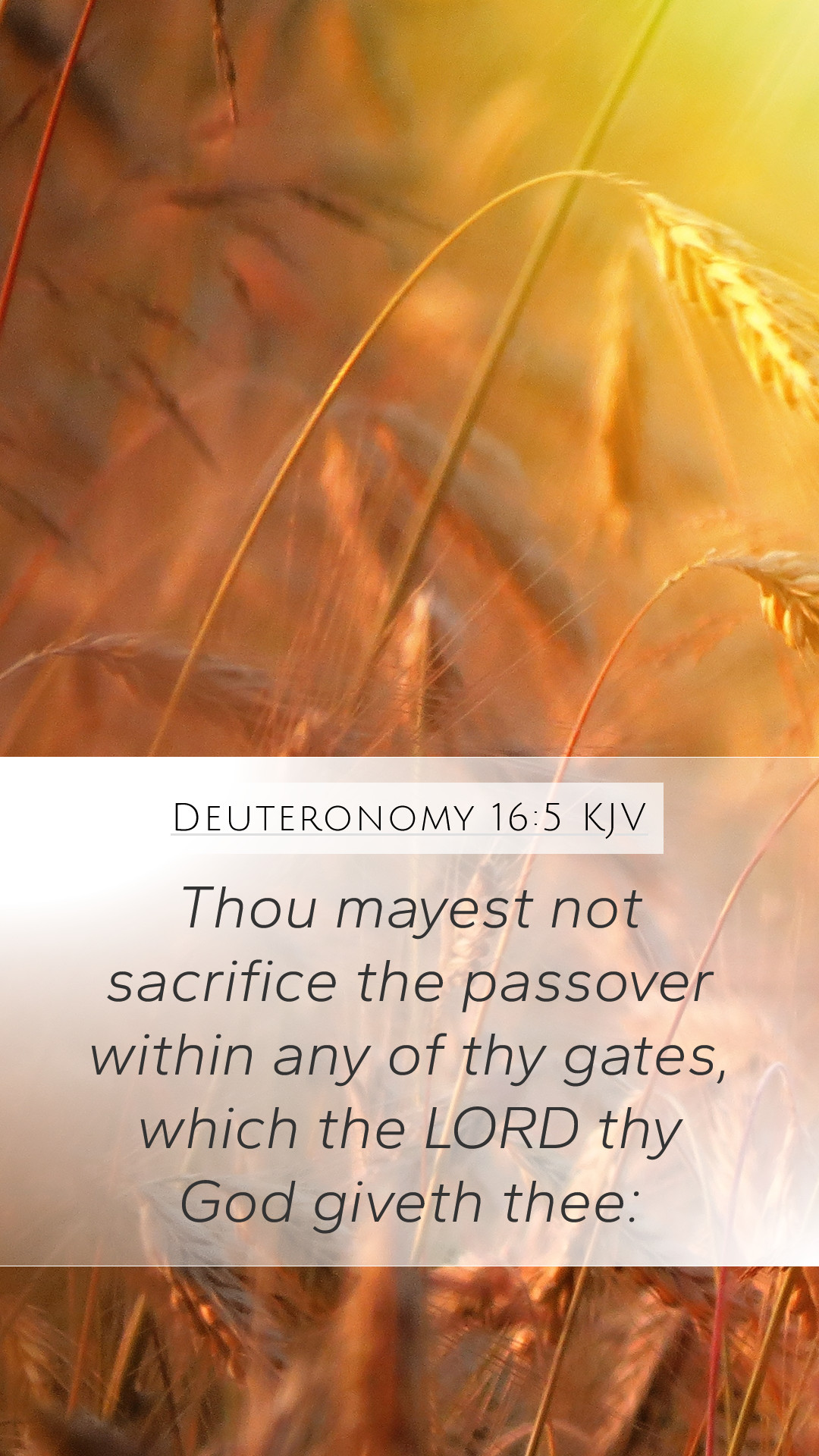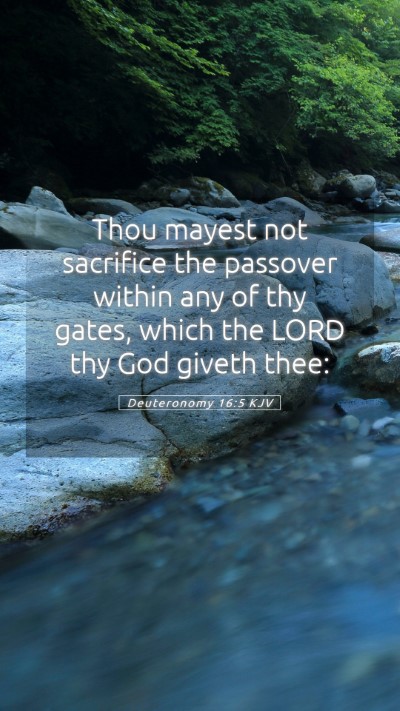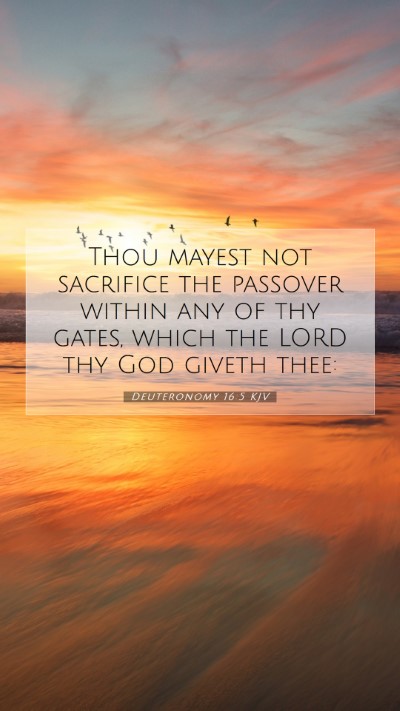Understanding Deuteronomy 16:5
Deuteronomy 16:5 states, "Thou mayest not sacrifice the passover within any of thy gates, which the LORD thy God giveth thee." This verse conveys crucial instructions regarding the proper observance of the Passover, central to Israel's identity as God's chosen people.
Meaning of this Bible Verse
This verse emphasizes the importance of performing the Passover sacrifice at a specific location, which God designates. This regulation serves to unify worship and ensure that sacrifices are not made in a way that would detract from their significance.
Bible Verse Commentary
- Matthew Henry: Henry highlights that this injunction underscores God's desire for order in worship. By specifying a singular place for sacrifices, the text establishes a focal point for national unity and divine communion.
- Albert Barnes: Barnes observes that this directive reflects the reverence required in approaching God. It demonstrates the seriousness inherent in sacrificial acts, which should not be treated casually or done in random locations.
- Adam Clarke: Clarke notes that this illustrates the importance of following God's specific commands. The location signifies the sanctity of the sacrificial act, symbolizing the congregation's unity as they gather in obedience to God's will.
Scripture Analysis
Understanding Deuteronomy 16:5 requires seeing it within the broader context of the Book of Deuteronomy, as it addresses lifestyle and worship practices among the Israelites:
- It reiterates the importance of centralized worship in Jerusalem, linking it to themes of fidelity and obedience to God's commands.
- The verse also serves as a reminder of God’s sovereignty over the lives of His people, marking their identity through prescribed ritual.
Historical Context
The command in Deuteronomy was given at a pivotal time, as the Israelites were poised to enter the Promised Land. This context emphasizes not just the practicality of worship but its theological implications as part of a covenant relationship with God.
Application of Bible Verse
Today, this verse invites reflection on how we approach our worship and observance of traditions within faith communities. It calls for intentionality and reverence towards sacred acts, pointing towards the need for respect in our spiritual lives.
Bible Study Insights
For those engaged in Bible study groups or online Bible study, Deuteronomy 16:5 offers rich discussion points:
- How does this verse inform our understanding of communal worship?
- What does it teach about God's expectations for ritual purity and order?
- How can we apply lessons from this commandment to contemporary worship practices?
Related Bible Cross References
- Exodus 12:25 - Further instructions on the Passover observance.
- Leviticus 17:3-4 - The necessity of offering sacrifices at the door of the Tabernacle.
- Deuteronomy 12:5-7 - The directive to worship at the place God will choose.
Conclusion
In summary, Deuteronomy 16:5 is more than a historical instruction; it is a foundational principle that shapes our understanding of worship and community. Through careful Biblical exegesis, we see the enduring significance of honoring God’s specific commands as a vital part of our faith journey.


